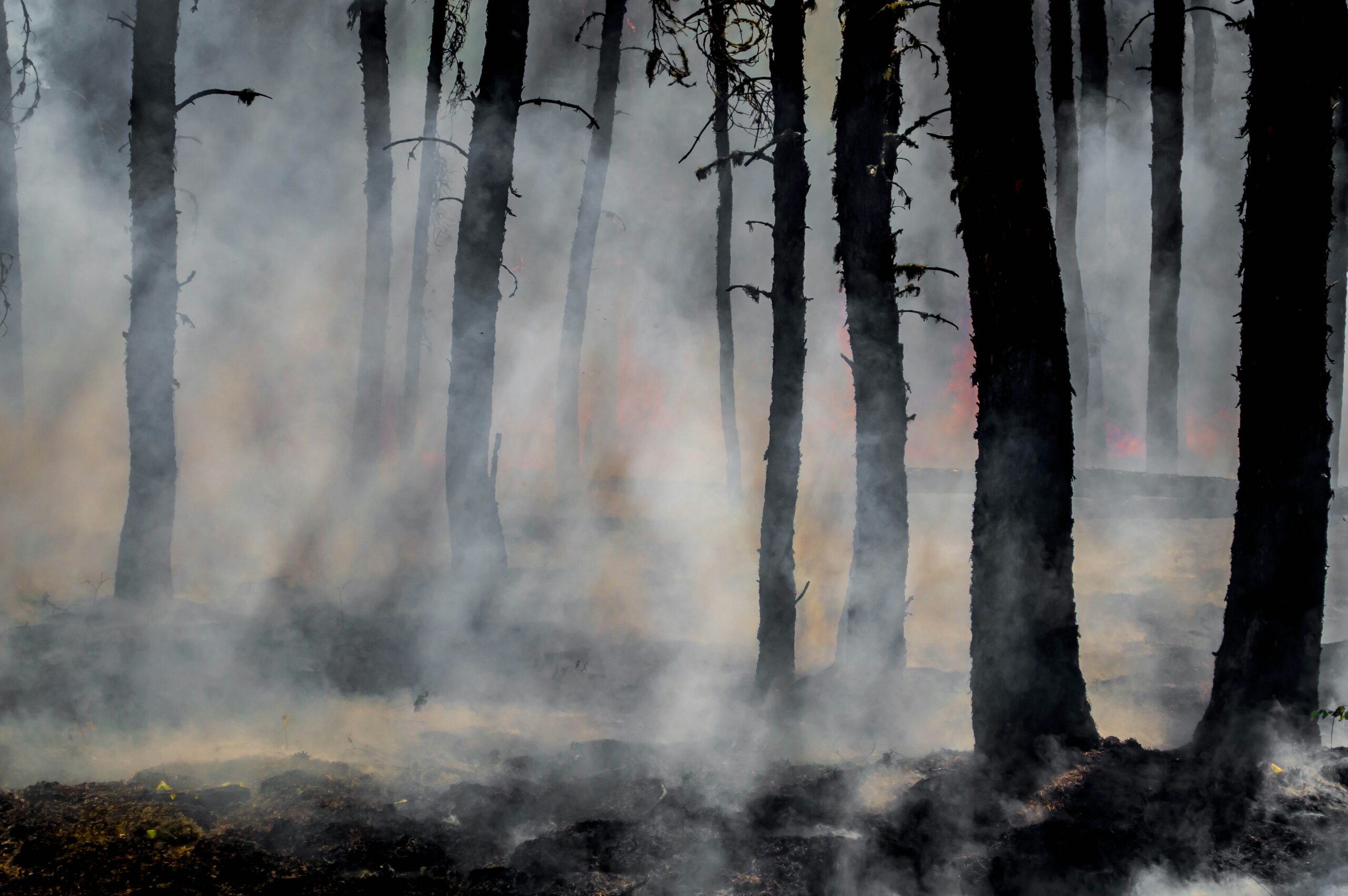
Policy Options
Wildfire Resilience and Preparedness Policy Options
Overview
While fire is an essential, natural process, extreme wildfires are becoming more frequent, severe, and extensive due to climate change. Climate change is fueling warmer temperatures, drier conditions, and more frequent droughts, leading to a longer fire season and heightened wildfire risk. To protect communities and ecosystems, it is vital for states to prioritize wildfire resilience and preparedness. Strengthening wildfire resiliency and preparedness is essential to safeguarding both lives and the environment in an increasingly unpredictable climate.
Policy Options
(‘**’ indicates bipartisan support)
Wildfire Insurance & Liability
- California A.B. 1054 (enacted 2019): Takes steps to enforce utility safety standards, assess when and how costs arising from utility-caused wildfires can be passed on to ratepayers, and provides tools for utilities to manage liabilities
- Oregon S.B. 82 (enacted 2023): Mandates that insurers provide detailed notices to policyholders if a homeowner insurance policy is canceled, not renewed, or if premiums are increased due to wildfire risk; prohibits using state wildfire risk maps as grounds for such actions.
Prescribed Burning and Thinning
- California A.B. 297 (enacted 2023): Amends the Public Resources Code to include prescribed grazing as a fire prevention activity, alongside expanding public education outreach to cover training on prescribed grazing and other fire prevention strategies.
- Louisiana S.B. 81 (enacted 2024): Creates requirements and procedures for individuals who have not completed the prescribed burning certification program including notification of location, date, and time of any prescribed burn they intend to conduct.
Ecosystem Management for Wildfire Resilience
- **Oklahoma H.B. 2239 (enacted 2024): Empowers the Oklahoma Conservation Commission to manage harmful woody species to improve grazing lands, reduce wildfire risks, enhance wildlife habitat, and increase water flow.
- Hawaii S.C.R 123 (enacted 2024): Requests the Department of Land and Natural Resources to form a working group to assess the feasibility of using a vegetation management program for landowners and public utilities to reduce wildfire risk.
- **New Mexico H.B. 195 (enacted 2023): Grants the state forestry division authority over non federal and non municipal lands, outlines specific forest management activities and purposes of the division, and establishes guidelines and processes for providing technical assistance to landowners.
Wildfires & the Grid
- California S.B. 533 (enacted 2021): Mandates that utilities identify circuits frequently de-energized to mitigate wildfire risks, outlines measures to reduce future de-energization impacts, and requires utilities to annually submit a comprehensive wildfire mitigation plan.
- Washington H.B. 1032 (enacted 2023): Mandates electric utilities to develop and implement wildfire mitigation plans emphasizing collaboration between electric utilities, state agencies, emergency responders, and other stakeholders.
Wildfires & Buildings
- Oregon S.B. 80 (enacted 2023): Mandates the creation and maintenance of a statewide wildfire hazard map to educate residents about wildfire risks, prioritize mitigation resources, and identify areas where home retrofits are needed.
- **Washington H.B. 6120 (enacted 2024): Enhances building standards for wildland adjacent urban developments to improve safety and resilience against wildfires.
Community Preparedness
- **Washington H.B. 1578 (enacted 2023): Directed the Department of Natural Resources to develop a comprehensive approach to improved community preparedness, response, recovery, and resilience to wildfires, smoke exposure, and postfire hazards.
- **Colorado HB 1075 (enacted 2023): Mandates a study on the integration of evacuation and clearance time modeling into emergency management plans for wildfire risk areas.
- **Colorado H.B. 1006 (enacted 2024): Establishes a Rural Grant Navigator Program aimed at assisting rural communities in applying for federal or state grants related to wildfire mitigation and preparedness.
Capacity for Fighting Wildfires
- **Hawaii S.B. 2085 (enacted 2024): Re-establishes the position of the State Fire Marshal for coordinating fire protection efforts, working with local and state agencies on fire services, enforcing the state fire code, assessing fire risks, proposing amendments to the fire code, reviewing emergency resources, and overseeing public education on fire safety.
- **Arizona H.B. 2751 (enacted 2024): Establishes the Great Plains Wildland Fire Protection Compact and authorizes the Governor of Arizona to enter into an agreement with South Dakota, North Dakota, Wyoming, Colorado, and any adjoining states of a current member to enhance the prevention and control of forest fires.
- Louisiana S.B. 328 (enacted 2024): Mandates the state forester to establish a training program for volunteer firefighters focused on proper wildland firefighting practices and procedures.

Empower State Environmental Champions
Your donation funds the fight for equitable actions that protect the environment and our health.
Donate